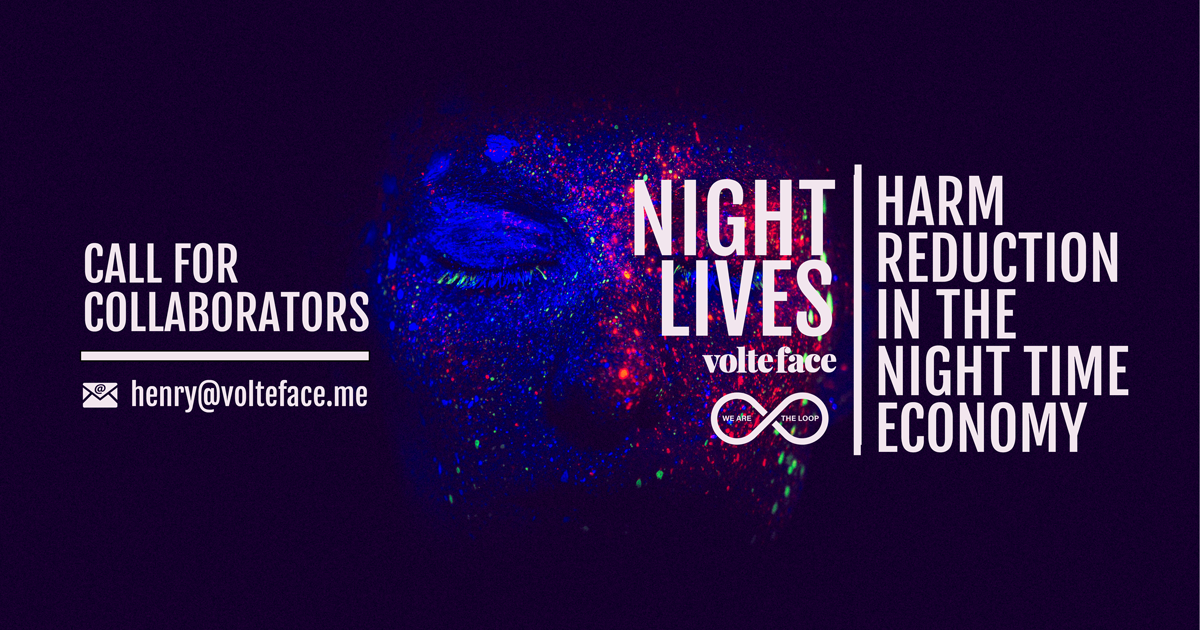MDMA related deaths in the UK are at record levels and rising. Cocaine related deaths show a worryingly similar trend. Both have more than doubled since 2012. The average purity of these drugs is currently at peak levels, while ecstasy pill strengths continue to increase year on year, all increasing the risk of overdose. New drug trends continue to develop, with ever more concerning substances entering the market. We have a new generation of clubbers, who are new to the hard-learned lessons of the rave generation. Finding ways to effectively communicate information on safer drug use is more pertinent than ever.
We are excited to be embarking on a new project, Night Lives, in partnership with harm reduction organisation The Loop, investigating drugs and harm reduction in the night time economy. The project will explore innovative and effective initiatives, and examine the political, legal and cultural barriers that prevent them from being delivered in night time environments.
Every avoidable death that occurs in night time economy is an unwelcome reminder that not enough is done to protect its single most important element – the lives of the people who frequent it. It is a sad reality that it is often only after an onsite death that many venues and authorities address deficiencies in harm reduction policy. The outcome of such tragic events can variously lead to adoption of improved harm reduction practices and a united approach from stakeholders, or to a breakdown in the relationship between licensing authorities, police and venues, and ultimately the removal of licences, enforcement of unrealistic licensing conditions, and venue closures.
The economic cost of failing to protect people in night time environments is all too often underestimated by local government. Licensed venues and events are shouldered with the blame for either failing to protect their patrons, or allowing illegal activity, in the shape or drug use, to take place. Acknowledgement of the reality is needed from all sides, that drug use in the night time environment is inevitable, and preemptive measures. Councils are better served by working with venues and event organisers to reduce the harms of drug use in these populations than by adopting an adversarial approach that prevents dialogue, and discourages venues and events from adopting policies that address this reality.
Effective harm reduction isn’t just about to addressing the extremes, the deaths and the hospitalisations. By improving people’s drinking and drug taking practices, it can also make the night time a better place – more fun, for more people. Safer drug taking doesn’t just mean people are more likely to come back alive, but it means everyone is far more likely to have a good time, whether they consume drugs or not.
Aimed both at policymakers in local and central government, and key stakeholders within the night time economy, Night Lives will launch early 2018, and aims to provide useful, practical policy recommendations at local and national levels, to better facilitate harm reduction in the night time economy.
This project will be led by Dr Henry Fisher, Health and Science Policy Director at Volteface, and Senior Chemist for The Loop. We are keen to include input from a wide range of stakeholders and collaborate with organisations across the night time environment. Please contact henry@volteface.me if you are interested in collaborating or supporting this project in any way.

